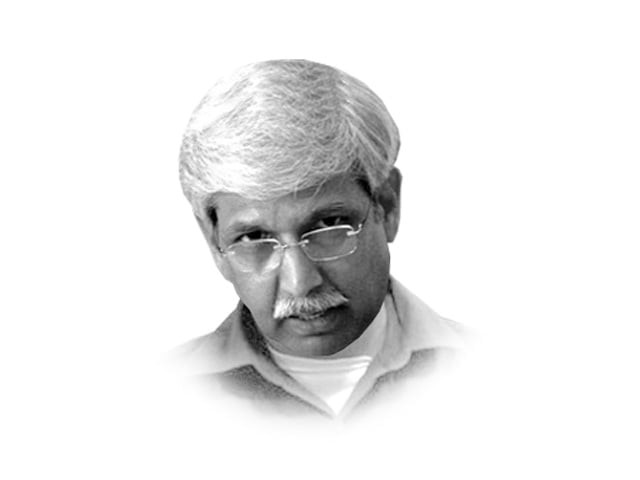Push and pull — and public space
As legal cases against the PPP reach closure, the Party, its leading lights have adorned a Tariq bin Ziad reflex.

What may seem beguiling, however, is that such disposition is at its most belligerent after the frequent core committee meetings of the PPP where stock-taking takes place and future strategies are finalised. At times President Zardari’s own political acumen, far superior to any contrarian advice, appears eclipsed foreclosing options to seek political adjustments, pitching the PPP against institutions. Legalese for now seems to be trumping politics; or, perhaps it is a case of smart politics?
Consider. There has been a slow-but-sure building up of the pressure on the military with regard to the memo. A legal process in the Court was first challenged in parliament by Bushra Gohar of the ANP, who raised the matter of the DG ISI’s alleged effort to overthrow the government. That assumption was negated with some delay by the military through legal recourse but the damage had been done. Bushra Gohar placed Shuja Pasha and Husain Haqqani on an even keel, and this indeed was smart politics beating the military at their own game of time and space.
Next was the inimitable Asma Jahangir. She mounted an offence on the competition to weaken its credibility. The competition quite conveniently was posed to be the military though the complainant was Mian Nawaz Sharif. Not once did she focus her arguments on the intentions of the petitioner and kept on framing the case as one which pitted the military versus Husain Haqqani — and hence the threat of military rule versus democracy. She was hoping that the Court would see the evil in the contrived design to uproot the political dispensation. The ploy did not work and the Court stuck to the merits of the maintainability issue.
During the course of the hearing and in her argument to dismiss the petition, Ms Jahangir got the opportunity to lambast the institution of the military at will, further muddying the already paling fate of institutional diffidence. As the drama played out, the two institutions — the political government and the military — that per se were only extended partners in the case — became centrestage. Call it smart strategy or legal acumen, Ms Jahangir successfully expanded the field of play and shielded her client from primary focus. Her client and the party in power through such formulation were now tied into inseparable destinies. —
Ms Jahangir’s public ire against the Supreme Court was part frustration against a Court that she expected to be sympathetic towards her. Of course it was also an opportunity to bring into question the Court itself, as an alleged abettor of the heinous designs of the military. Slowly but surely, by now the two perceived threats, the judiciary and the military, were both in the centre-frame and kosher targets for the PPP. That places into perspective the two famed pronouncements of the prime minister for his fifteen minutes of fame despite risking an institutional confrontation. In doing so he too added to the space that his party desperately needed especially when it posed an irrational challenge to the military to intervene and plunge the entire edifice of the country to serious tumult.
There is also an internal division within the PPP. Those like Babar Awan wish to stand the test of time through a bawdy display of opportune loyalty and lead the PPP into various confrontations, while consummate politicians like Khurshid Shah want to stick to sane politics. The likely decision to go to early polls is a sound political route avoiding the confrontationist path. Similarly, when the president says that an institutional stand-off is an evolutionary adjustment towards a desired balance in the civil-military equation, he in fact is acknowledging the increased space that politics has garnered through some smart stratagem.
Published in The Express Tribune, January 16th, 2012.















COMMENTS
Comments are moderated and generally will be posted if they are on-topic and not abusive.
For more information, please see our Comments FAQ